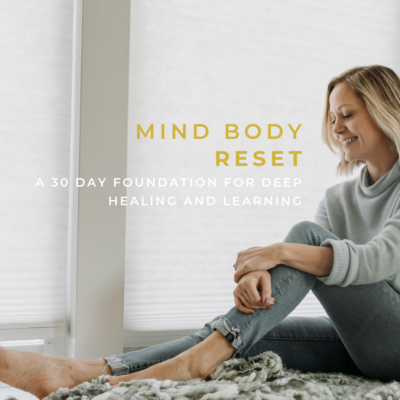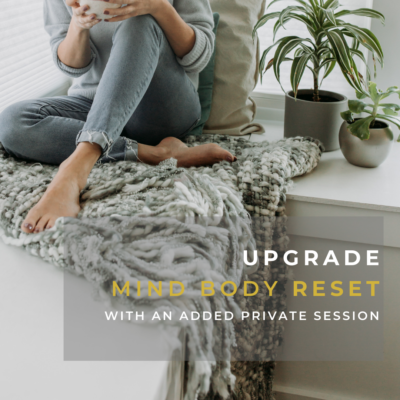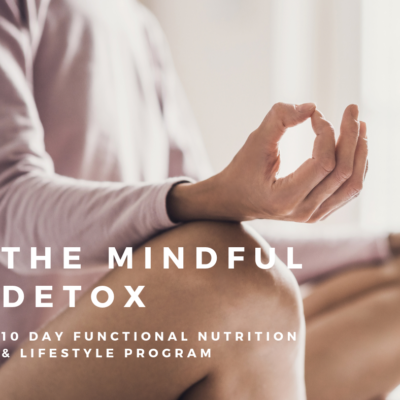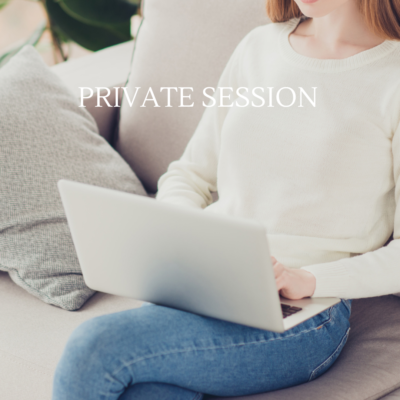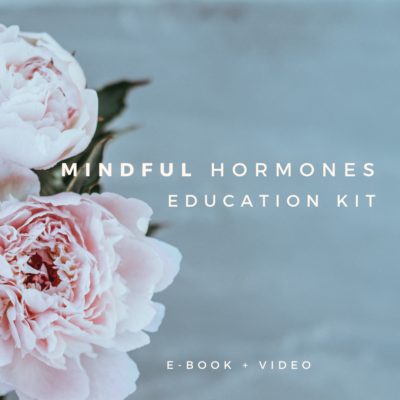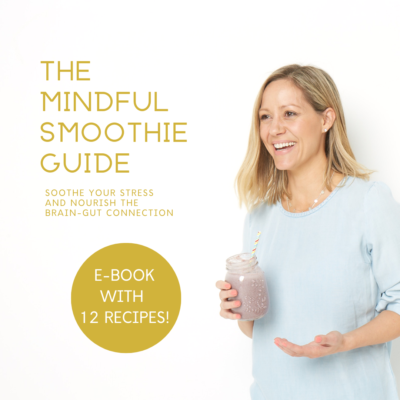Navigating your own health while you’re the one in the midst of the experience is the most challenging thing we face on a healing path. It’s pretty much the worst time to hit us with all the confusion that is health. For many it triggers a level of depression, sadness and grief as we lose touch with the person we thought we were, and our identity becomes cloaked in the emotional challenge of day to day coping.
What should we do when we are hit with health issues?
Whether you are dealing with a major diagnosis, mixed opinions, trying to resolve your IBS or just feel constant FLC (feeling like crap syndrome as one of my patients has called it) and you’re not getting answers, I hear you. This is exactly why I left my corporate role within the health industry. So that I can help you steer in the storm, because I’ve been there.
Hearing so many varied solutions from health professionals is one of the hardest things to discern. You’re not the expert, so how are you supposed to know who’s right? When I went through years of chronic pain, it seemed everyone could help. And I was a great student, willing to try it all. Fish oil? Sign me up. Body work? Of course. I’ll try everything! And I did. Acupuncture, pilates classes, psychology, meditation, crystal healings, reiki, massage, rolfing, yoga, Alexander method, back cushions, new bed, new ergonomic car, essential oils, more supplements. And everything gave me a tiny bit of relief, but I was still in pain.
The thing I realise now is that the part that we don’t often see is the huge emotional impact of being unwell.
I used to stand at the back of my class through uni lectures, and just bare it. I coped the best I could, and often finished the day in tears. It was exhausting constantly managing it all. I just wanted to be normal, I wanted my flexible yoga self back, I wanted to go for a run. But it took years. Eventually my marriage broke down, under what I can see in retrospect was emotional strain. This is an important lesson I learned. Our health impacts our relationships. Our ability to cope, and communicate, even when we are not ‘ourselves’, is everything.
There is such a high resilience needed to maintain perspective when challenged. But we don’t have anywhere to learn these skills except in them.
It feels impossible, but somehow we need to keep a ‘positive’ spark going, even while we feel our worst; depleted, drained and probably (if you’re like me) depressed. And we need to be honest about where we are at too. I’m not talking about pretending or ‘positivity’. We need the strength and honesty to reach out for help, and to feel what’s there without running away or suppressing with medications aka ‘ the vulnerability eraser’.
It’s not easy. I’ve been fortunate enough to have been ‘anchored’ in my health study through my whole pain episode, and surrounded by an industry that is open to the alternatives. A big growth for me happened when I become expert enough that I can confidently call out some of the other ‘experts’ that were wrong. Or at least walk away and find my own path.
My own healing journey has been directly connected to my emotional growth. Lean in. Lean in. Lean in.
Over the years I collected all kinds of amazing insights from the different practitioners along the way. Not all were worth the money spent, unfortunately, but I couldn’t have gotten to this place without them. I needed to find out that we can so ‘no’ to something and still stay open, and that we have to trust our internal guidance.
For me, it took years to overcome the intense loneliness that was chronic pain. It was so multi layered, no one person had the answers.
No one could have told me that the relationship I thought was keeping me ‘safe’, was actually undermining my healing. Well they could have, but I wouldn’t have been ready to hear it. No one could have predicted that sub-clinical gluten intolerance was flaring up the sciatic area and contributing to chronic inflammation and constant nerve pain, stealing any hope for stability in my own body. The reality is the science is new and emerging, very few would even consider this. Very few think creatively with health, even though so many suffer without resolve.
At the end of the day I’ve been the one responsible for discovering the secret bits of gold on the way to healing. This is MY journey.
To heal is an emotional as much as a biochemical shift. There is nothing straightforward about it, it challenges who you are, the layers of discovery and truth are complex and the challenge is real. On all accounts. Healing is transformative.
And yes, for those of you paying attention, I did say gluten intolerance was underlying my chronic pain! There’s a video here where I talk about this a bit if you want to know more. Understanding Modern Gluten Intolerance”
As for resilience, here are some important tools for your toolbox.
- Support your stress response with adaptogens like ashwaganda, withania, Siberian ginseng, rhodiola and medicinal mushrooms.
- Don’t think of your health as broken, think of this as an opportunity to break through. Challenging I know. Please stay with it.
- A push mindset is will block healing, we have to relax for the body to heal. There is no room for forcing or rushing here.
- Stay open minded, strange simple things can help. For example cold therapy is good for anxiety.
- Exercise is a better anti-depressant than drugs are. Move in any way you can, even if you just have energy to roll over. Do that.
- Sleep heals. Take naps, rest, sleep it off. The fatigue will pass when you’re healed. It takes time.
- Diet is key, even foods you think are healthy, could be blocking healing. Get therapeutic.
- Your intuition is more reliable than any test! Trust yourself.
- Ask for help. Reach out. You are not alone.
- Breathe. Hold space for yourself to just be in this.
We can’t go past the simple and significant impact of mindfulness and meditation.
If you don’t know this already about me, I’m a huge advocate for meditation practise. Of all the tools I use including exercise, supplements and diet, I see meditation aas a key area for health professionals to help their patients with healing.
Check out these articles for more about why and additional tips for stress management.
Pushing through? How Headspace Flicked a Switch
5 Stressors to Watch Out For
7 Peaceful Ways to Ride Out a Stress Storm
The Mad Truth About Hustling
Hurry Up and RelaxYou can also watch my short video about coping with anxiety
“When you FLC, there’s a level of helplessness and hopelessness that sets in, you don’t quite have the energy to rally for yourself, make the dr. appointments, ask for help etc… I read the signs my body was giving me, knew something was off, and was able to muster the energy to ask for help and I’m so glad I did. I got off the phone with (Sita from Mind Body IQ) and feel equipped and supported to work on healing. All I had to do was take the first step and book the appointment with a trusted resource. I know I’m in good hands and on the path to healing.” – Kimberly Constantino
Your resilience will come from you keeping on keeping on.
Know that your body breaking down is not a punishment, you are still you. The pain we are all going through on this journey is just a set of circumstances for learning. It’s ok that it’s hard, it’s ok that you feel overwhelmed. But please lean in. Reach out and ask for support and guidance. Keep open and keep searching for answers.
When I was in pain, I probably would have been pretty devastated if you had told me it would take 7-10 years to heal. But here I am now, with all these tools and resources, and on the other side. I wouldn’t change a thing.
Sending you all my love and healing,
Sita



